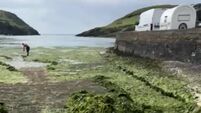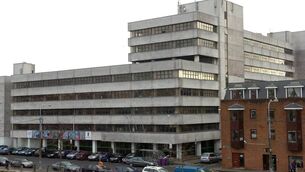UCC academics brave tear gas in Honduras to aid education

Yensi Flores Bueso at UCC's quad. Picture: Clare Keogh
A team of academics from University College Cork (UCC) braved riots and tear-gas to encourage sustainable education, amid political unrest in Honduras.
The journey began in 2015 when Yensi Flores Bueso, a new UCC PhD student from Honduras, wondered if she could help her alma mater - the National University of Honduras (UNAH).













